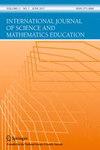在南非生命科学和物理科学学校课程中纳入科学的本质
IF 2.1
3区 教育学
Q2 EDUCATION & EDUCATIONAL RESEARCH
International Journal of Science and Mathematics Education
Pub Date : 2023-09-20
DOI:10.1007/s10763-023-10415-5
引用次数: 0
摘要
世界范围内的课程改革往往反映了科学教与学观念的变化。这样的观点强调了这样一种观念,即不仅科学内容知识的教学是相关的,而且科学家用来促进他们的知识和应用科学的社会背景的目标和方法也是相关的。我们称之为科学的“认知-认知”和“社会制度方面”。它们构成了课程改革的科学本质理念的核心。在南非,经过多年的种族隔离,学校科学课程改革的一个重点是重视NOS,因为学习和理解NOS对学生有潜在的好处。本研究分析了南非生命科学和物理科学学校课程中NOS的认知知识和社会制度类别。生命科学和物理科学课程的一个重要发现是NOS类别的不平衡。在课程中,与认知-认知范畴相比,社会-制度范畴的存在较少。总体而言,NOS类别之间的相互关联性较差,其中“科学实践”和“方法和方法论规则”的认知-认识类别的相互关联性最强。讨论了未来课程设计的意义和对未来研究的建议。本文章由计算机程序翻译,如有差异,请以英文原文为准。
The Inclusion of Nature of Science in South African Life Sciences and Physical Sciences School Curricula
Abstract Curriculum reform worldwide has often reflected changing perspectives on the teaching and learning of science. Such perspectives underline the notion that not only the teaching of science content knowledge is relevant but also the aims and methods scientists use to further their knowledge and the social context in which science is applied. We call this the ‘cognitive-epistemic’ and ‘social institutional aspects’ of science. They form the hard core of the nature of science (NOS) concept for curriculum reform. In South Africa, after years of Apartheid, a key focus of school science curriculum reform is for importance to be given to NOS due to the potential benefits of learning and understanding of NOS for students. This study analyses cognitive-epistemic and social-institutional categories of NOS in the South African Life Sciences and Physical Sciences school curricula. A critical finding for both Life Sciences and Physical Sciences curricula was the imbalance in the NOS categories. In the curricula, there is less presence of the social-institutional categories compared to the cognitive-epistemic categories. In general, there was poor interconnectedness amongst NOS categories, with the strongest interconnectedness revealed for the cognitive-epistemic categories ‘scientific practices’ and ‘methods and methodological rules’. Implications for the design of future curricula and recommendations for future research are discussed.
求助全文
通过发布文献求助,成功后即可免费获取论文全文。
去求助
来源期刊

International Journal of Science and Mathematics Education
EDUCATION & EDUCATIONAL RESEARCH-
CiteScore
5.10
自引率
9.10%
发文量
87
期刊介绍:
The objective of this journal is to publish original, fully peer-reviewed articles on a variety of topics and research methods in both science and mathematics education. The journal welcomes articles that address common issues in mathematics and science education and cross-curricular dimensions more widely. Specific attention will be paid to manuscripts written by authors whose native language is not English and the editors have made arrangements for support in re-writing where appropriate. Contemporary educators highlight the importance of viewing knowledge as context-oriented and not limited to one domain. This concurs with current curriculum reforms worldwide for interdisciplinary and integrated curricula. Modern educational practice also focuses on the use of new technology in assisting instruction which may be easily implemented into such an integrated curriculum. The journal welcomes studies that explore science and mathematics education from different cultural perspectives.
 求助内容:
求助内容: 应助结果提醒方式:
应助结果提醒方式:


